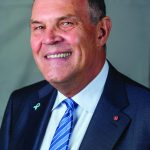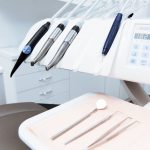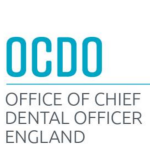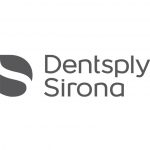Dr Nigel Carter OBE, Chief Executive of the Oral Health Foundation, on actions taken to help support dentists amid COVID-19.
Throughout lockdown, the Oral Health Foundation has been supporting patients achieve a better quality of life through good oral health.
We wrote an open letter to the Secretary of State for Health and Social Care, Matt Hancock MP, to address one very urgent request – the freezing of NHS dental charges in England:
Dear Secretary of State,
I am writing on behalf of the Oral Health Foundation to call for NHS dental charges in England to be paused.
Undoubtedly, COVID-19 has put a financial strain on millions of people. While the government’s furlough scheme has protected around 7.5 million workers, many of these are missing out on 20% of their income. In normal circumstance, dental costs remain a significant barrier to attendance. More than one-in-three (36%) adults say the costs associated with NHS dental treatment have prevented them from accessing treatment. It is sensible to assume that at a time where more people and families are experiencing deeper financial struggles, dental visits will not be deemed a priority. This is specifically discriminatory to households on lower incomes, people with preexisting medical conditions and those at higher risk of dental disease.
From dental practice closures on 23 March to the partial re-opening on 8 June 2020, an estimated 2.3 million NHS adult dental patients in England had appointments cancelled or postponed. This translates to around 4.5 million less courses of treatment for adults who are expected to pay NHS dental charges. The cancellation of these procedures, if left untreated or unmanaged, could lead to more invasive and expensive treatments in the future, as well as deterioration of oral health. We are concerned that a rise dental caries, periodontitis and tooth loss are all very real possibilities.
There is an urgent need to offer help to those people at risk of dental disease, so their conditions are cared for in an appropriate and timely way. By temporarily pausing NHS dental costs, we believe it will offer an incentive for those in poorer health, needing more expensive treatment, to have their conditions treated. These are also the groups who might be more at risk of other diseases like mouth cancer. New cases of mouth cancer are on the rise in England (increasing by 64% in the last decade) and early diagnosis is essential for beating the disease and improving quality of life. Visiting the dentist is the main opportunity for early diagnosis of mouth cancer. In the wake of COVID-19 we have seen the suspension of UDAs, along with recommendations to postpone aerosol generating procedures, where possible. This will undoubtedly lead to many patients receiving multiple courses of treatment and incurring excessive cumulative patient charges. This places an unnecessary and unfair financial burden of those most in need.
The new set of dental practice guidelines also emphasise the need to reduce the amount of time a patient spends in a waiting room, and highlights the potential hazards caused by transferring cash. A pausing of NHS charges addresses both issues.
Since re-opening, dental practices in England have been given strict new ways of working, which include a fallow period in between patients. This means that dental practices are seeing far less patients than usual and experts are suggesting that dental practices are operating at 25% of their normal capacity. While this remains the case, any costs associated by pausing NHS dental charges would be a negligible expenditure for the Treasury. It is important that dentistry remains a fundamental part of a person’s health and wellbeing and must be reflected within the government’s wider health strategy.
Our data polling more than 2,000 people shows that 48% of the adult population are hesitant about returning to dental practices in the wake of COVID-19. Since then, dental practices across England have done amazing work to change the way they work, creating a safer and more comfortable environment for patients. We believe a financial incentive for patients in the form of a temporary pause on NHS dental charges would further help to encourage attendance. Ultimately, we believe pausing NHS dental charges will help hundreds and thousands of people combat dental disease and prevent a deterioration of health across the broadest spectrum of society.
I would ask that this request receives early consideration to help safeguard and protect the oral health of the nation.
Yours sincerely
Dr Nigel Carter OBE
You can support a freezing of NHS dental charges by writing to your local MP. Download the template letter by visiting: www.dentalhealth.org Find the details of your local MP at https://members.parliament.uk/constituencies.
















